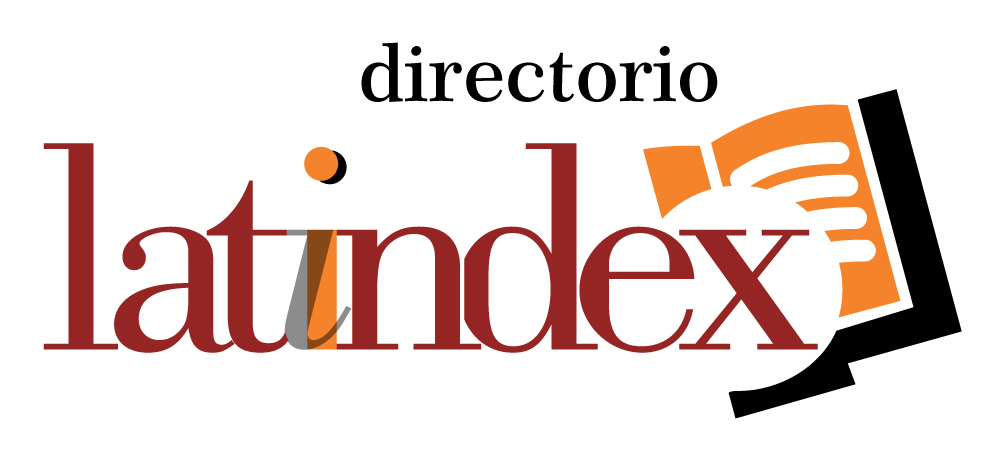Pro-environmental practices for sustainability: Advancing a greener future through global and local initiatives
DOI:
https://doi.org/10.32870/jbf.v5i9.80Keywords:
pro-environmental practices, sustainability, sustainable development, environmental challengesAbstract
In a world impacted by climate change and environmental degradation, the adoption of pro-environmental practices emerges as one of the key solutions to achieving sustainability. These practices aim to reduce the negative impact of human activities on the environment by promoting the conservation of natural resources and the protection of ecosystems. Sustainability, understood as the balance between human well-being and the preservation of the planet, requires a comprehensive approach that considers not only environmental factors but also economic and social dimensions. The path toward a greener future entail recognizing and addressing the environmental challenges we face, such as resource depletion, pollution, and biodiversity loss. To mitigate these issues, it is essential to adopt proactive behaviors at both individual and collective levels. Pro-environmental practices, such as the responsible management of resources and the promotion of more sustainable production and consumption systems, are fundamental to ensuring that future generations can enjoy a healthy planet. Integrating these practices across all sectors demands close collaboration among governments, businesses, academia, and civil society. Public policies and regulatory frameworks play a critical role in creating an enabling environment for sustainability, fostering the adoption of responsible behaviors and technological innovation. Likewise, active citizen participation is essential to achieving real and lasting change toward a more sustainable development model. By embracing these practices and policies, we can move toward a more balanced and environmentally respectful future.
Downloads
References
Agnew, D. J., Pearce, J., Pramod, G., Peatman, T., Watson, R., Beddington, J. R., y Pitcher, T. J. (2009). Estimating the worldwide extent of illegal fishing. PLOS ONE, 4(2), e4570. https://doi.org/10.1371/journal.pone.0004570
Aguilar-Salinas, W., Ojeda-Benitez, S., Cruz-Sotelo, S. E., y Castro-Rodríguez, J. R. (2017). Model to evaluate pro-environmental consumer practices. Environments, 4(1), 11. https://doi.org/10.3390/ENVIRONMENTS4010011
Alcázar-Espinoza, J. A. (2024). La reforestación para mitigar el cambio climático a través de la evidencia científica reciente. Horizon Nexus Journal, 2(2), 1-14. https://doi.org/10.70881/hnj/v2/n2/35
Aldape-Garcia, A. O. (2018). Using conversations to enhance pro-environmental practices in high-rise public housing: A comparative study between Mexico and Australia. En Water quality management: Select proceedings of ICWEES-2016 (pp. 349-362). Springer. https://doi.org/10.1007/978-981-10-5795-3_30
Ali, S. A., Waqar, S. A., Jamal, S., Ali, S., y Hashmi, S. B. (2018). Climate change: A public health issue. Annals of Clinical and Laboratory Research, 6(4). https://doi.org/10.21767/2386-5180.100273
Assunção, J., Gandour, C., y Rocha, R. (2015). Deforestation slowdown in the Brazilian Amazon: Prices or policies? Environment and Development Economics, 20(6), 697–722. https://doi.org/10.1017/S1355770X15000078
Bamberg, S., y Möser, G. (2007). Twenty years after Hines, Hungerford, and Tomera: A new meta-analysis of psycho-social determinants of pro-environmental behaviour. Journal of Environmental Psychology, 27(1), 14–25. https://doi.org/10.1016/j.jenvp.2006.12.002
Barr, S., Gilg, A. W., y Shaw, G. (2011). Citizens, consumers and sustainability: (Re)Framing environmental practice in an age of climate change. Global Environmental Change, 21(4), 1224–1233. https://doi.org/10.1016/j.gloenvcha.2011.07.009
Barron, P., Cord, L., Cuesta, J., Espinoza, S., Larson, G., y Woolcock, M. (2023). La sostenibilidad social en el desarrollo: Cómo enfrentar los desafíos del siglo XXI. [Cuadernillo del “Panorama general”]. Banco Mundial. https://doi.org/10.1596/978-1-4648-1946-9
Bordoni, A. (2023). Insight into the sustainability of the Mediterranean diet: The water footprint of the recommended Italian diet. Nutrients, 15(9), 2204. https://doi.org/10.3390/nu15092204
Borges, P. A. V., Gabriel, R., y Fattorini, S. (2021). Biodiversity erosion: Causes and consequences. En W. Leal Filho, A. M. Azul, L. Brandli, A. Lange Salvia, y T. Wall (Eds.), Life on Land. Encyclopedia of the UN Sustainable Development Goals. Springer International Publishing. https://doi.org/10.1007/978-3-319-95981-8_78
Borrelle, S. B., Ringma, J., Lavender Law, K., Monnahan, C. C., Lebreton, L., McGivern, A., Murphy, E., Jambeck, J., Leonard, G. H., Hilleary, M. A., Eriksen, M., Possingham, H. P., De Frond, H., Gerber, L. R., Polidoro, B., Tahir, A., Bernard, M., Mallos, N., Barnes, M., y Rochman, C. M. (2020). Predicted growth in plastic waste exceeds efforts to mitigate plastic pollution. Science, 369(6510), 1515–1518. https://doi.org/10.1126/science.aba3656
Boyce, J. K. (2018). The environmental cost of inequality. Scientific American, 319(5), 72-77. https://doi.org/10.1038/scientificamerican1118-72
Caballero-García, P. A., y Pérez-Castro, M. J. (2021). Importancia del consumo responsable para un desarrollo sostenible. Research, Society and Development, 10(1), e13510111770. https://doi.org/10.33448/rsd-v10i1.7880
Carabal, N., de Souza Cardoso, L., Padisák, J., Selmeczy, G. B., Puche, E., y Rodrigo, M. A. (2024). How a constructed wetland within a natural park enhances plankton communities after more than 10 years of operation: changes over space and time. Environmental Research, 120114. https://doi.org/10.1016/j.envres.2024.120114
Carley, S., Evans, T. P., Graff, M., y Konisky, D. M. (2018). A framework for evaluating geographic disparities in energy transition vulnerability. Nature Energy, 3(8), 621–627. https://doi.org/10.1038/s41560-018-0142-z
Chakravarty, S. (1991). Sustainable development. European Journal of Development Research, 3(1), 67-77. https://doi.org/10.1080/09578819108426541
Chalupka, S. M., Latter, A., & Trombley, J. (2023). Climate and environmental change: A generation at risk. MCN: The American Journal of Maternal/Child Nursing, 48(4), 181-187. https://doi.org/10.1097/nmc.0000000000000924
Chauhan, A. K. S. (2024). The Role of Environmental Laws in achieving sustainable development goals by 2030. International Journal for Multidisciplinary Research, 6(1). https://doi.org/10.36948/ijfmr.2024.v06i01.13614
Chawla, L., y Cushing, D. F. (2007). Education for strategic environmental behavior. Environmental Education Research, 13(4), 437–452. https://doi.org/10.1080/13504620701581539
Chazdon, R. L., y Guariguata, M. R. (2018). Herramientas de apoyo a decisiones para la restauración del paisaje forestal: Estado actual y futuro (Documentos Ocasionales 189). Centro para la Investigación Forestal Internacional (CIFOR). https://doi.org/10.17528/cifor/007002
Darwall, W., Bremerich, V., De Wever, A., Dell, A. I., Freyhof, J., Gessner, M. O., ... y Weyl, O. (2018). The alliance for freshwater life: A global call to unite efforts for freshwater biodiversity science and conservation. Aquatic Conservation: Marine and Freshwater Ecosystems, 28(4), 1015–1022. https://doi.org/10.1002/aqc.2958
FAO (2013). Food Wastage Footprint: Impacts on Natural Resources. Organización de las Naciones Unidas para la Alimentación y la Agricultura. https://www.fao.org/4/i3347e/i3347e.pdf
Fawell, J., y Nieuwenhuijsen, M. J. (2022). Contaminants in drinking water: Environmental pollution and health. British Medical Bulletin, 141(1), 21–36 https://doi.org/10.1093/bmb/ldg027
Fernandes, G. W., Banhos, A., Barbosa, N. P. U., Barbosa, M., Bergallo, H. G., Loureiro, C. G., Overbeck, G. E., Solar, R., Strassburg, B. B. N., y Vale, M. M. (2018). Restoring Brazil’s road margins could help the country offset its CO2 emissions and comply with the Bonn and Paris Agreements. Perspectives in Ecology and Conservation, 16(2), 105-112. https://doi.org/10.1016/j.pecon.2018.02.001
Gao, Z., Zhao, Y., Li, L., y Hao, Y. (2024). Economic effects of sustainable energy technology progress under carbon reduction targets: An analysis based on a dynamic multi-regional CGE model. Applied Energy, 363, 123071. https://doi.org/10.1016/j.apenergy.2024.123071
Garcia-Herrero, L., Lavrnic, S., Guerrieri, V., Toscano, A., Milani, M., Cirelli, G. L., y Vittuari, M. (2023). Cost-benefit of green infrastructures for water management: A sustainability assessment of full-scale constructed wetlands in Northern and Southern Italy. Science of the Total Environment, 857, 159409. https://doi.org/10.1016/j.ecoleng.2022.106797
Gialeli, M., Troumbis, A., Giaginis, C., Papadopoulou, S., Antoniadis, I., y Vasios, G. K. (2023). The global growth of ‘sustainable diet’ during recent decades, a bibliometric analysis. Sustainability, 5(15), 11957. https://doi.org/10.3390/su151511957
Giordano, M., y de Fraiture, C. (2014). Small private irrigation: Enhancing benefits and managing trade-offs. Agricultural Water Management, 131, 175–182. https://doi.org/10.1016/j.agwat.2013.07.003
Gleick, P. H. (2020). Water as a weapon and casualty of armed conflict: A review of recent water-related violence in Iraq, Syria, and Yemen. WIREs Water, 6(4), e1351. https://doi.org/10.1002/wat2.1351
González Cañedo, J. A., y Barrón Tirado, C. (2011). Consumo responsable y educación para la sostenibilidad: una mirada desde el consumo alimentario. Cultura, Educación y Sociedad, 2(1), 149–158. https://doi.org/10.17981/cultedusoc.2.1.2011.931
González-González, J. M., Vázquez-Salas, R. A., y Muñoz-Hernández, O. (2016). El sistema agroalimentario mexicano: entre la autosuficiencia y la dependencia. Revista Mexicana de Ciencias Agrícolas, 7(3), 499–513. https://doi.org/10.1016/j.remexca.2016.05.004
Goswami, S. P., Chauhan, A. K., Chauhan, S., y Mishra, U. (2024). Green technology for sustainable energy procution from agriculture sector. En Futuristic Trends in Renewable & Sustainable Energy Volume 3, Book 3, (pp. 183–195). IIP Series. https://doi.org/10.58532/v3birs3p8ch1
Gustavsson, J., Cederberg, C., Sonesson, U., van Otterdijk, R., y Meybeck, A. (2011). Global food losses and food waste. Food and Agriculture Organization of the United Nations (FAO).
Hilborn, R., Amoroso, R. O., Anderson, C. M., Baum, J. K., Branch, T. A., Costello, C., ... y Ye, Y. (2020). Effective fisheries management instrumental in improving fish stock status. Proceedings of the National Academy of Sciences, 117(4), 2218–2224. https://doi.org/10.1073/pnas.1909726116
Hoegh-Guldberg, O., Mumby, P. J., Hooten, A. J., Steneck, R. S., Greenfield, P., Gomez, E., ... y Knowlton, N. (2007). Coral reefs under rapid climate change and ocean acidification. Science, 318(5857), 1737–1742. https://doi.org/10.1126/science.1152509
Hughes, T. P., Barnes, M. L., Bellwood, D. R., Cinner, J. E., Cumming, G. S., Jackson, J. B., ... y Scheffer, M. (2017). Coral reefs in the Anthropocene. Nature, 546(7656), 82–90. https://doi.org/10.1038/nature22901
Iaquinto, B. L. (2022). Locating pro?environmental vernacular practices of tourism. Geography Compass, 16(3), e12611. https://doi.org/10.1111/gec3.12611
IPCC. (2023). Climate change 2023: Synthesis report. Contribution of Working Groups I, II and III to the Sixth Assessment Report. https://www.ipcc.ch/report/ar6/syr/
IRENA. (2022). Renewable energy policies in a time of transition: Global landscape report. International Renewable Energy Agency. https://www.irena.org/publications
Jambeck, J. R., Geyer, R., Wilcox, C., Siegler, T. R., Perryman, M., Andrady, A., Narayan, R., y Law, K. L. (2015). Plastic waste inputs from land into the ocean. Science, 347(6223), 768–771. https://doi.org/10.1126/science.1260352
Kollmuss, A., y Agyeman, J. (2002). Mind the gap: Why do people act environmentally and what are the barriers to pro-environmental behavior? Environmental Education Research, 8(3), 239–260. https://doi.org/10.1080/13504620220145401
Krämer, L. (2020). Global environmental challenges and the EU. ERA Forum, 21(2), 341–360. https://doi.org/10.1007/S12027-018-0544-1
Kumar, V., Ranjan, D., y Verma, K. S. (2021). Global climate change: the loop between cause and impact. En S. Singh, P. Singh, S. Rangabhashiyam, y K.K. Srivastava (Eds.) Global climate change (pp. 187–211). Elsevier. https://doi.org/10.1016/B978-0-12-822928-6.00002-2
Le Quéré, C., Andrew, R. M., Friedlingstein, P., Sitch, S., Hauck, J., Pongratz, J., ... y Zheng, B. (2018). Global carbon budget 2018. Earth System Science Data, 10(4), 2141–2194. https://doi.org/10.5194/essd-10-2141-2018
Lee, W. H., y Cho, V. G. (2010). Handbook of sustainable energy. Nova Science Publishers. http://ci.nii.ac.jp/ncid/BB10184374
Li, M., ul Abidin, R. Z., Qammar, R., Qadri, S. U., Khan, M. K., Ma, Z., Qadri, S., Ahmed, H., ud din Khan, H. S., y Mahmood, S. (2023). Pro-environmental behavior, green HRM practices, and green psychological climate: Examining the underlying mechanism in Pakistan. Frontiers in Environmental Science, 11, 1067531.https://doi.org/10.3389/fenvs.2023.1067531
Liu, Y., He, X., Yuan, C., Cao, P., y Bai, X. (2023). Antifouling applications and fabrications of biomimetic micro-structured surfaces: a review. Journal of Advanced Research, 59, 201-221. https://doi.org/10.1016/j.jare.2023.08.019
Lv, Y. (2023). Transitioning to sustainable energy: Opportunities, challenges, and the potential of blockchain technology. Frontiers in Energy Research, 11, 1258044. https://doi.org/10.3389/fenrg.2023.1258044
Mallick, R., y Choudhary, A. (2024). Harvesting Health: Sustainable Dietary Habits for us and the Planet. International Journal For Multidisciplinary Research, 6(1), 1-5. http://doi.org/10.36948/ijfmr.2024.v06i01.11751
Mieles-Giler, J. W., Guerrero-Calero, J. M., Moran-González, M. R., y Zapata-Velasco, M. L. (2024). Evaluación de la degradación ambiental en hábitats naturales. Journal of Economic and Social Science Research, 4(3), 65–88. https://doi.org/10.55813/gaea/jessr/v4/n3/121
Mohan, G., Perarapu, L. N., Chapagain, S. K., Reddy, A. A., Melts, I., Mishra, R., Avtar, R., y Fukushi, K. (2024). Assessing determinants, challenges and perceptions to adopting water-saving technologies among agricultural households in semi-arid states of India. Current Research in Environmental Sustainability, 7, 100255. https://doi.org/10.1016/j.crsust.2024.100255
Morris, C., y Jungjohann, A. (2016). Energy democracy: Germany’s Energiewende to renewables. Palgrave Macmillan. https://archive.org/details/energydemocracyg0000morr/page/n9/mode/2up
Naciones Unidas. (2015a). Transformar nuestro mundo: La Agenda 2030 para el Desarrollo Sostenible. https://sdgs.un.org/es/2030agenda
Naciones Unidas. (2015b). Acuerdo de París. https://unfccc.int/sites/default/files/spanish_paris_agreement.pdf
Naciones Unidas. (2023). Informe de los Objetivos de Desarrollo Sostenible 2023: Edición especial. https://unstats.un.org/sdgs
Orr, D. W. (2011). Two meanings of sustainability. En D. W. Orr (Ed.) Hope is an Imperative (pp. 93–111). Island Press. https://doi.org/10.5822/978-1-61091-017-0_11
Peker, H., y Günal, A. M. (2023). Sustainable utrition. Sustainable Social Development, 1(2), 2218. https://doi.org/10.54517/ssd.v1i2.2218
Porter, M. E., y Van der Linde, C. (1995). Toward a new conception of the environment-competitiveness relationship. Journal of Economic Perspectives, 9(4), 97–118. https://doi.org/10.1257/jep.9.4.97
Préau, C., Tournebize, J., Lenormand, M., Alleaume, S., Gouy Boussada, V., y Luque, S. (2022). Habitat connectivity in agricultural landscapes improving multi-functionality of constructed wetlands as nature-based solutions. Ecological Engineering, 179, 106617. https://doi.org/10.48550/arXiv.2207.03826
Prinzing, M., Lades, L. K., Weber, T. O., Fredrickson, B. L., y Laffan, K. M. (2023). Pro-environmental behaviors and well-being in everyday life. Journal of Environmental Psychology, 98, 101825. https://doi.org/10.1016/j.jenvp.2024.102394
Programa de las Naciones Unidas para el Desarrollo [PNUD]. (2020). Human development report 2020: The next frontier—Human development and the Anthropocene. United Nations. https://hdr.undp.org/system/files/documents//hdr2020pdf.pdf
Raizada, A., Sharma, S., y Srivastava, N. (2022). Climate change - An overview. Journal of Mountain Research. 17(2), 205-214. https://doi.org/10.51220/jmr.v17i2.23
Retegi, A., Irizar-Arrieta, A., y Bereziartua, L. (2023). The pleasure of doing the right thing: Designing pro-environmental experiences with industrial design engineering students. Blucher Design Proceedings. 11(4), 1-16. https://doi.org/10.5151/ead2023-1bil-01full-09retegi
Rivas Torres, F. E. (2019). La Agenda 2030. Sapienza Organizacional, 6(12), 250-252. https://www.redalyc.org/articulo.oa?id=553066097002
Rootes, C. (2007). Acting locally: The character, contexts and significance of local environmental mobilisations. Environmental Politics, 16(5), 722–741. https://doi.org/10.1080/09644010701640460
Rosen, M., y Farsi, A. (2022). Sustainable energy technologies for seawater desalination. Academic Press. https://doi.org/10.1016/b978-0-323-99872-7.00007-3
Rybyanets, V., y Moiseeva, E. (2024). Environmental law as an independent branch of law. Materials of the International Scientific and Practical Conference dedicated to World Environment Day “Synthesis of Science and Education in Solving the Environmental Problems Of Modernity–2024” (pp 197-202). https://doi.org/10.58168/synthesis2024_197-202
Said, M. A., Hassan, F. U., Islam, M. S., Bin Toriman, M. E., Rehim, A., Bashir, M. A., Ali Raza, H. M., y Nawaz, R. (2024). Environmental Sustainability. En S. Idris (Ed.), Global challenges for the environment and climate change (pp 1-15). IGI Global Scientific Publishing. https://doi.org/10.4018/979-8-3693-2845-3.ch001
Sandoval-Escobar, M., y Ortiz-Ramírez, J. S. (2025). Educación ambiental: aportes de la psicología ambiental para el diseño de intervenciones efectivas. Revista Logos Ciencia y Tecnología, 17(1), 217-232. https://doi.org/10.22335/rlct.v17i1.2021
Seddon, N., Chausson, A., Berry, P., Girardin, C. A. J., Smith, A., y Turner, B. (2020). Understanding the value and limits of nature-based solutions to climate change and other global challenges. Philosophical Transactions of the Royal Society B: Biological Sciences, 375(1794), 20190120. https://doi.org/10.1098/rstb.2019.0120
Shivanna, K. R. (2022). Climate change and its impact on biodiversity and human welfare. Proceedings of the Indian National Science Academy. Part A, Physical Sciences, 88, 160-171. https://doi.org/10.1007/s43538-022-00073-6
SMS Foundation. (2023). How are water harvesting systems a sustainable solution for water scarcity? https://www.smsfoundation.org/how-are-water-harvesting-systems-a-sustainable-solution-for-water-scarcity/
Steg, L., y Vlek, C. (2009). Encouraging pro-environmental behaviour: An integrative review and research agenda. Journal of Environmental Psychology, 29(3), 309–317. https://doi.org/10.1016/j.jenvp.2008.10.004
Tam K. P. (2025). Culture and pro-environmental behavior. Current Opinion in Psychology, 62, 101986. https://doi.org/10.1016/j.copsyc.2024.101986
The Guardian. (2025, March 14). “All the birds returned”: How a Chinese project led the way in water and soil conservation. https://www.theguardian.com/environment/2025/mar/14/how-china-led-way-water-soil-conservation
Times of India. (2025, March 1). Pune sees 34% decline in carbon sequestration as urban sprawl reduces green cover. https://timesofindia.indiatimes.com/city/pune/pune-sees-34-decline-in-carbon-sequestration-as-urban-sprawl-reduces-green-cover/articleshow/121398801.cms
UCAR Center for Science Education. (s.f.). The water cycle and climate change. https://scied.ucar.edu/learning-zone/climate-change-impacts/water-cycle-climate-change
Ujager, F. S. (2025). Sustainable sustainability: A holistic approach. En F- S. Ujager, H. Ali, y S. S. Ahmad (Eds.) Exploring pillars of sustainability for modern age improvements (pp 1-16). IGI Global Scientific Publishing. https://doi.org/10.4018/979-8-3693-5748-4.ch001
UNESCO (2017). Education for sustainable development goals: learning objectives. United Nations Educational, Scientific and Cultural Organization. https://unesdoc.unesco.org/ark:/48223/pf0000247444
Uribe-Gómez, S., Francisco-Nicolás, N., y Turrent-Fernández, A. (2002). Pérdida de suelo y nutrimentos en un entisol con prácticas de conservación en Los Tuxtlas, Veracruz, México. Agrociencia, 36(2), 161–168. https://www.redalyc.org/pdf/302/30236203.pdf
Wang, J., y Xiao, Y. (2005). Local environmental legislation and sustainable development. Research on the Geographical Environment of Yunnan, 17, 86-88. https://doi.org/10.3969/j.issn.1001-7852.2005.z1.021
Wang, Y., Zhao, W., Han, M., Xu, J., y Tam, K. C. (2023). Biomimetic surface engineering for sustainable water harvesting systems. Nature Water, 1, 587–601. https://doi.org/10.1038/s44221-023-00109-1
Watson, J. E., Dudley, N., Segan, D. B., y Hockings, M. (2014). The performance and potential of protected areas. Nature, 515(7525), 67–73. https://doi.org/10.1038/nature13947
Willett, W., Rockström, J., Loken, B., Springmann, M., Lang, T., Vermeulen, S., ... y Murray, C. J. (2019). Food in the Anthropocene: The EAT–Lancet Commission on healthy diets from sustainable food systems. The Lancet, 393(10170), 447-492. https://doi.org/10.1016/S0140-6736(18)31788-4
Zainal, A., Fadzil, H. M., Shahali, E. H. M., Zhu, C., y Jacobs, G. M. (2024). Exploring sustainable diets as a climate mitigation strategy: An integrated bibliometric analysis and thematic literature review. International Review for Spatial Planning and Sustainable Development, 12(2), 1-27. https://doi.org/10.14246/irspsd.12.2_1
Zhang, Q., Liu, H., Chen, Y., Liu, Q., Zhang, H., y Song, Y. (2024). Groundwater depletion caused by overextraction and climate variability: A case study of the North China Plain. Journal of Hydrology, 628, 130474. https://doi.org/10.1016/j.jhydrol.2024.130474
Published
How to Cite
Issue
Section
License
Copyright (c) 2025 Authors

This work is licensed under a Creative Commons Attribution 4.0 International License.
This is an open-access article distributed under the terms of the Creative Commons Attribution License (CC BY). The use, distribution or reproduction is permitted, provided the original author(s) and the copyright owner(s) are credited and that the original publication in this journal is cited, in accordance with accepted academic practice. No use, distribution or reproduction is permitted which does not comply with these terms.







